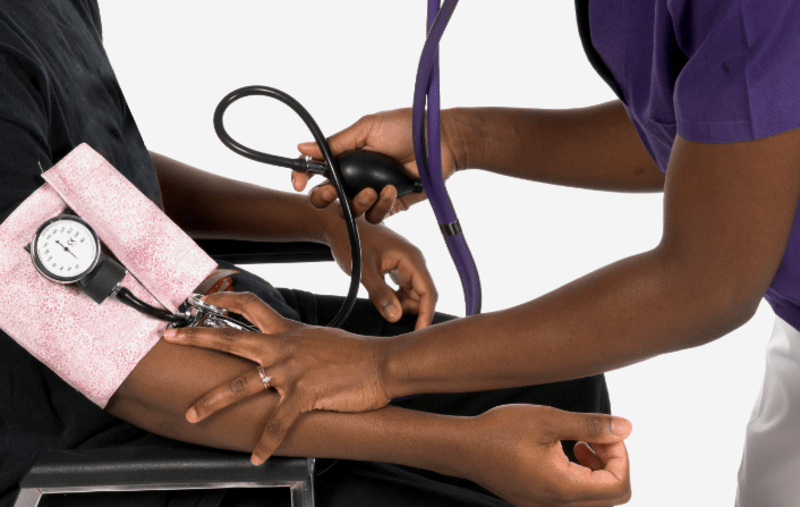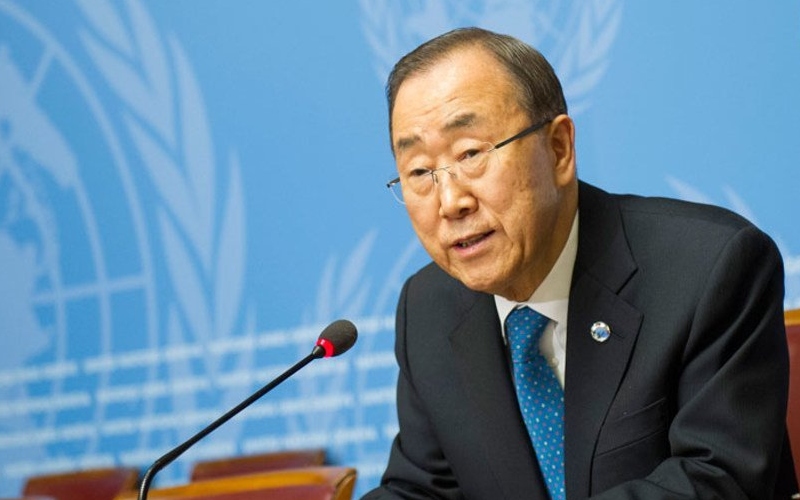Stroke: The silent killer of untreated high blood pressure

Untreated hypertension can lead to a stroke by weakening the blood vessel walls, accelerating heart disease, and causing blood clots or plaques to block brain arteries.
Pauline, 70, recalls a harrowing experience following her stroke. One day, she was home alone, desperately needing to use the bathroom. With no one around to help, she was forced to soil herself.
Isolated and unable to call for assistance, she endured the agony and shame of sitting in soiled clothes until her daughter-in-law returned in the evening. The intense odour and overwhelming embarrassment left her feeling ashamed and helpless.
More To Read
- How follow-up programmes bridge treatment gap in non-communicable diseases
- Africa faces a growing stroke epidemic, urgently needs its own locally adapted care guidelines
- Hormonal contraceptives linked to higher breast cancer risk, study finds
- Viral infections linked to higher risk of heart attacks and strokes
- Surviving the next pandemic could depend on where you live
- WHO urges countries to protect health budgets amid aid reductions
Every morning, Pauline drags herself to her favourite chair facing the main gate. From this spot, she watches with nostalgia as neighbours head to their farms, hoping passersby might stop to help her. What was once a source of joy has become a bittersweet reminder of the vitality she once enjoyed.
After enduring several high blood pressure episodes, Pauline suffered a stroke that left one side of her body paralysed. Now, she can no longer engage in the activities she once cherished.
"I hate being a burden, especially when I need help with basic things like using the bathroom. It wears me out and puts a strain on those around me, who could be doing other things but instead have to take care of me," Pauline said.
For years, Pauline believed her healthy lifestyle, despite neglecting her blood pressure issues, would guarantee a long and healthy life. She thought eating well, walking long distances, and working on the farm were enough. However, three years ago, her untreated blood pressure began to escalate.
She recalls a day when a spike in her blood pressure caused her to collapse, leading to an urgent hospital visit. Though she survived, she was never the same. The stroke initially affected her speech, but over time, her speech improved. However, stress continues to trigger her blood pressure, causing frequent setbacks.
"My blood pressure has become a major issue. I have to take so many medications, and sometimes I forget or run out and don’t want to bother anyone. Managing these drugs at my age is exhausting. After my second stroke, which left me paralyzed on one side, the doctors said it was due to my high blood pressure," Pauline said.
She laments how the illness has affected her life. Some family members have stopped visiting, and others take advantage of her vulnerability, knowing she can't care for herself. She now relies entirely on others.
Untreated hypertension can lead to a stroke by weakening the blood vessel walls, accelerating heart disease, and causing blood clots or plaques to block brain arteries. High blood pressure is linked to numerous diseases.
Dr. Esther Mwaura, a clinical officer in Nairobi, explains that high blood pressure occurs when the heart pumps blood with excessive force. This can damage various organs, including the heart. The condition typically develops gradually.
"Regular health check-ups are crucial because they allow for the early detection of high blood pressure, which affects people regardless of gender. If untreated, high blood pressure can have severe consequences," Dr. Mwaura emphasised.
She identified several triggers for hypertension, including stress, alcohol consumption, and drug use. If left unmanaged, hypertension can result in serious health complications.
"Those with untreated high blood pressure risk developing kidney problems, paralysis, and strokes. It's essential to take prescribed medications because high blood pressure forces the heart to work harder, and without proper management, it can be extremely dangerous," she warned.
Dr. Mwaura advises that patients with hypertension consistently follow their medication regimen to prevent complications.
High blood pressure damages the artery walls, making them more prone to plaque buildup. This plaque can harden, narrow, or block the arteries, restricting blood flow. Plaques can also lead to blood clots, increasing the risk of heart attacks and strokes.
According to the Ministry of Health, hypertension affects 30% of the global population. In Kenya, the prevalence is 24%, with 78% of those diagnosed not receiving treatment.
The rising prevalence of hypertension is attributed to unhealthy diets, sedentary lifestyles, and excessive alcohol and tobacco use. Hypertension is a major contributor to cardiovascular diseases, the second leading cause of death in Kenya. Known as a "silent killer," it often goes undetected until complications arise.
Managing Hypertension
Effective management of hypertension involves regular screening, early detection, and prompt treatment. However, the 2018 Kenya Health Facility Assessment reveals that 44% of health facilities in Kenya cannot diagnose or treat hypertension.
The government has prioritised hypertension and cardiovascular diseases in its strategic plan, aiming to reduce premature deaths from non-communicable diseases by one-third.
A global study published in The Lancet found that the number of adults aged 30–79 with hypertension has surged from 650 million to 1.28 billion over the past 30 years. Over half of those with hypertension—53% of women and 62% of men—are not receiving necessary treatment.
In 2019, Kenya ranked among the top 10 countries with the lowest hypertension treatment rates, with only 21% of individuals receiving proper care.
The World Health Organisation reports that 46% of adults with hypertension are unaware of their condition, and only 42% are diagnosed and treated. Of those, just 21% manage to control their blood pressure.
Symptoms of dangerously high blood pressure (usually 180/120 or higher) include severe headaches, chest pain, dizziness, difficulty breathing, nausea, vomiting, blurred vision, anxiety, confusion, nosebleeds, and abnormal heart rhythms.
Prevention and treatment involve lifestyle changes such as eating a healthy, low-salt diet, losing weight, increasing physical activity, and quitting tobacco. Some individuals may also need medication to manage their blood pressure effectively.
Top Stories Today











































